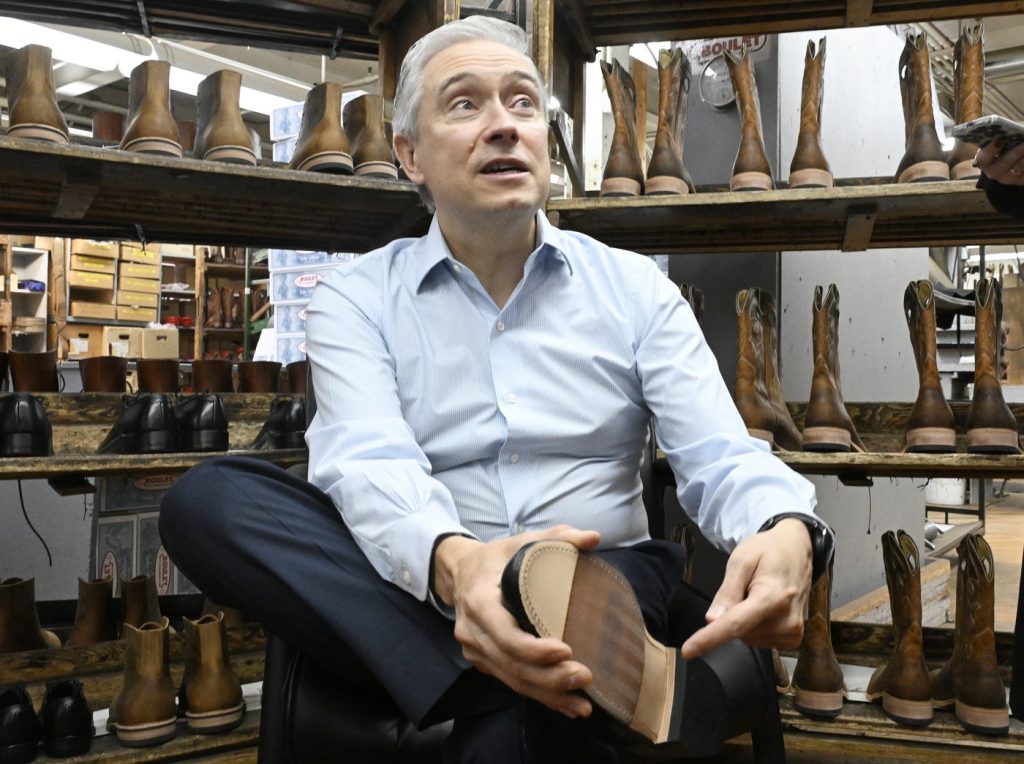OTTAWA – As the upcoming budget vote approaches, federal politicians across party lines express a strong desire to avoid a Christmas election. However, the looming possibility of a snap election remains, leaving voters to consider their options in the ballot box.
Government House Leader Steven MacKinnon recently indicated that the Liberal government does not currently have the necessary votes to approve the budget set to be introduced on Tuesday afternoon. This budget is scheduled for a vote later in the month, and the stakes are high.
MacKinnon urged Opposition Leader Pierre Poilievre not to adopt a "grinchy" stance and encouraged Conservative MPs to support the forthcoming budget. Poilievre, during a question period on Monday, emphasized that if the government presents an "affordable" budget, it could avoid an early election. He pointed out that Prime Minister Mark Carney has suggested Canadians struggling to afford basic necessities need to make "sacrifices."
"The choice for us is simple," Poilievre stated. "If the budget lowers the cost of living, we will support it. If it raises the cost, as has been the trend with previous Liberal budgets, we will vote no." He has previously asserted that the government must keep the deficit under $42 billion, cut income taxes, and eliminate the industrial carbon price to secure Conservative backing.
In response to these assertions, MacKinnon assured that the budget will be "affordable" and will foster opportunities for "all Canadians." The budget vote is considered a confidence motion, meaning if the budget fails to pass, the government may collapse, leading to a snap election.
The Liberal party is currently three seats short of a majority and thus requires either a few votes from the opposition or sufficient abstentions to pass the budget. Interim NDP leader Don Davies mentioned to CBC News over the weekend that his caucus members have not ruled out abstaining from the vote but will wait to see the budget document before making a decision.
"We’re not speculating on how we’ll vote. We’ll wait and see the budget," Davies clarified, adding that support would depend on whether the budget is favorable for working people.
On the other hand, Christine Normandin, the House leader for the Bloc Québécois, criticized the government during question period, stating that the public is unimpressed by the Liberal government's threats of an early election to coerce opposition support for the budget. She urged the Liberals to work collaboratively with opposition parties, emphasizing that Canadians voted for a minority government in the last election.
Bloc Leader Yves-François Blanchet has indicated that his party is unlikely to support the budget unless their demands are addressed—specifically, the increase of old-age security payments and enhanced health transfers to provinces. Recently, Mark Carney held private discussions with opposition leaders to outline the government's priorities ahead of the budget.
Fred DeLorey, Conservative campaign manager from the 2021 election, warned that the current friction among the parties suggests the Carney government may not last long, predicting an early election. "The NDP have everything to gain from an election," DeLorey commented, suggesting that they would struggle to support a budget labeled as austerity. He also mentioned that the Conservatives, bolstered by a new voter coalition, may not tolerate any abstentions or votes in favor of the budget from their members.
Finance Minister François-Philippe Champagne stated on Monday morning that the budget aims to benefit all Canadians and will contain "no surprises." The government plans to prioritize several areas in the budget, including increased spending on capital projects, reducing the cost of government operations, expanding military funding, and implementing a national school food program.
DeLorey anticipates that, although the size of the deficit is expected to grow, Canadians may accept this as long as there is a comprehensive plan for economic growth. He highlighted that Canadians are most concerned with how the budget will help the country navigate a trade war with the United States and will be looking for strategies to diversify the economy and foster new market relationships.
This article initially appeared on November 4, 2025, and reflects the critical discussions and implications surrounding the upcoming federal budget vote in Canada.











